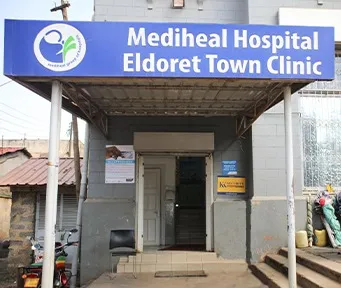Health Cabinet Secretary Aden Duale has issued a stern warning to Mediheal Group of Hospitals founder, Dr. Swarup Mishra, over allegations of involvement in a major organ trafficking syndicate. Speaking at the Kenya Medical Training College (KMTC) on Friday, CS Duale declared the government’s readiness to revoke Dr. Mishra’s Kenyan citizenship and deport him to India, alongside shutting down Mediheal facilities.
“You cannot come to our country 20 years ago with a bag, you make money, you sell our organs, you become a Member of Parliament, you develop a culture of impunity… we will revoke your citizenship, close your hospital, and deport you,” Duale warned, accusing Mishra of threatening government officials and using legal tactics to obstruct justice.
The warning follows the submission of a damning 314-page report by the Independent Investigative Committee on Tissue and Organ Transplant Services. The report, presented to CS Duale on July 22, highlights the existence of a sophisticated international kidney trafficking syndicate. Over a three-month period, investigators uncovered alarming irregularities involving 452 donors and 447 recipients across several hospitals.
Most shocking was the revelation that 417 donor files and 340 recipient cases making up 81% of all donors and 76% of all recipients were linked to Mediheal Hospital in Eldoret. The majority of patients were men, with data also showing that 44% of recipients were Kenyan residents, 16% were non-Kenyans, and 38.94% had no clear identification, suggesting documentation gaps or intentional concealment.
The report also noted that nearly half of the donors were Kenyan, while others came from countries such as Israel and Uganda, with 60 donors not disclosing their nationalities.
Parliament is currently reviewing the report, which recommends immediate investigations and potential criminal charges against Mishra. If adopted, the government could move swiftly to take legal and administrative action.
The scandal has raised serious concerns about the ethical integrity of Kenya’s transplant sector, prompting renewed calls for regulatory overhaul and stricter oversight of private health institutions.

